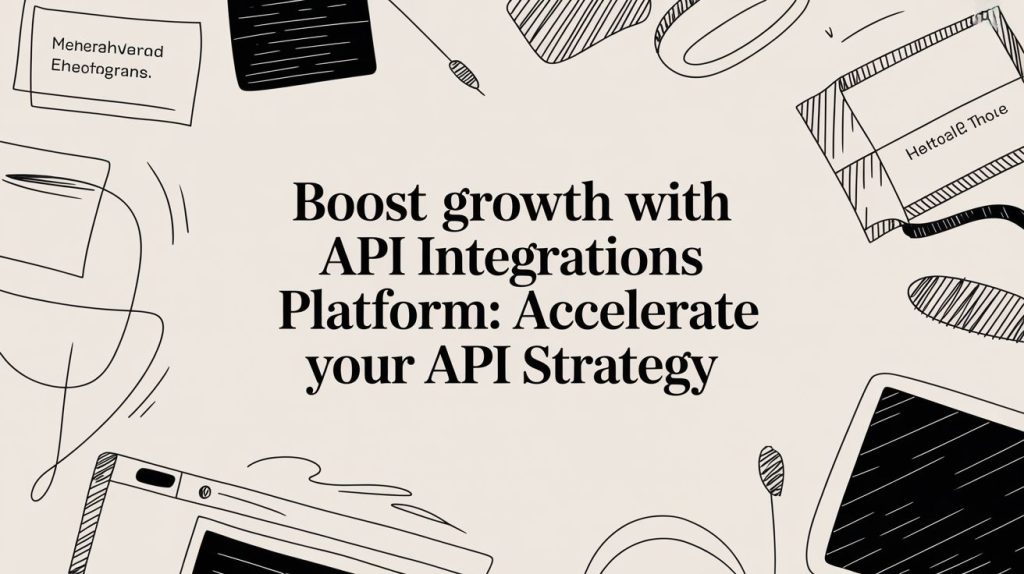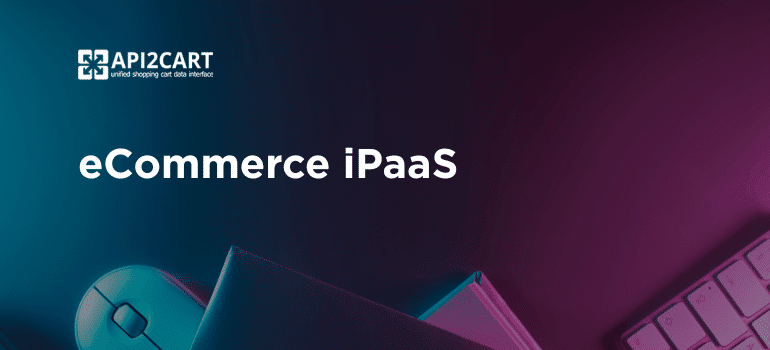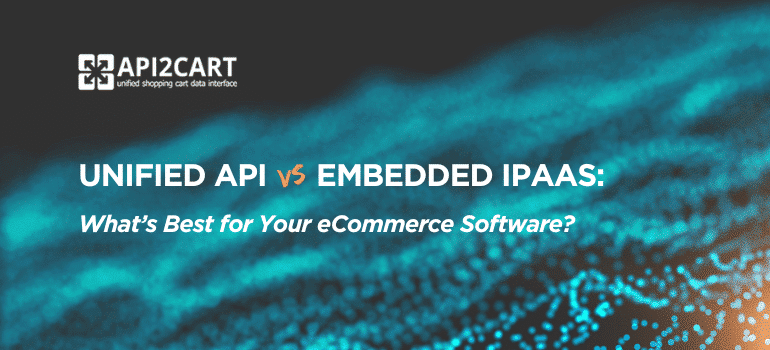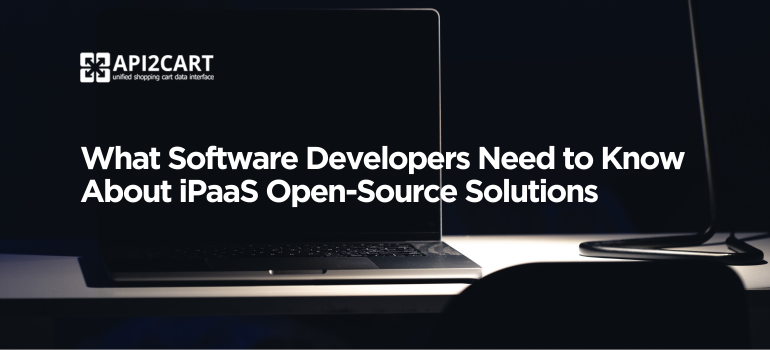
In today’s fast-paced digital landscape, software developers need efficient ways to integrate applications, automate workflows, and synchronize data across multiple systems. iPaaS solutions provide a seamless way to connect cloud applications, APIs, and enterprise systems. However, many proprietary iPaaS platforms come with high costs and limited flexibility, making iPaaS open-source solutions an attractive alternative for developers.
iPaaS open-source platforms offer the freedom to customize integrations, self-host deployments, and avoid vendor lock-in while maintaining scalability and automation. In this article, we’ll explore the best iPaaS open-source solutions for software developers, their key features, and how they can be leveraged to build efficient, scalable integration architectures. Whether you’re working on API orchestration, data synchronization, or workflow automation, this guide will help you find the right eCommerce iPaaS solution for your needs.
What is iPaaS and Its Open-Source Solutions?
Integration Platform as a Service (iPaaS) is a cloud-based solution that enables developers to connect applications, automate workflows, and manage data integration between different systems. iPaaS open-source solutions provide the same integration capabilities but with greater flexibility, customization, and cost-effectiveness.
For software developers, iPaaS platforms offer:
- Customizable Integration Solutions – Developers can modify and extend the platform to fit specific business needs;
- Cost Savings – No licensing fees compared to proprietary iPaaS solutions;
- Self-Hosting and Security Control – Ability to deploy on private infrastructure or cloud environments;
- Scalability and API Connectivity – Support for RESTful APIs, event-driven architectures, and workflow automation.
For software developers, these platforms provide a flexible, cost-effective, and scalable way to handle API integrations and data automation. Whether you’re building eCommerce, enterprise, or SaaS solutions, leveraging an open-source iPaaS can streamline development while maintaining full control over infrastructure and security.

Key Opportunities of iPaaS Open-Source Solutions
iPaaS open-source solutions provide software developers with powerful tools to connect applications, automate workflows, and manage data integration efficiently. Below are the key capabilities that make open-source iPaaS platforms a great choice for software development:
- API Connectivity and Integration:
- Connects multiple SaaS applications, databases, and enterprise systems;
- Supports REST, SOAP, GraphQL, and WebSocket APIs;
- Provides pre-built connectors for cloud apps and custom API integrations.
- Workflow Automation:
- Enables low-code and custom workflow automation;
- Supports event-driven integrations to trigger actions based on specific events;
- Provides drag-and-drop visual workflow builders.
- Data Transformation and Mapping:
- Converts data formats between JSON, XML, CSV, and databases;
- Provides ETL (Extract, Transform, Load) capabilities;
- Supports data validation and enrichment before sending it to destination systems.
- Event-Driven Architecture and Real-Time Processing:
- Listens for events from applications (new order, updated inventory);
- Uses message queues (Kafka, RabbitMQ, MQTT) and webhooks for real-time updates;
- Supports asynchronous data processing for large-scale operations.
- Cloud and On-Premise Deployment Flexibility:
- Supports self-hosted, cloud, and hybrid environments;
- Can be deployed in Docker, Kubernetes, or standalone servers;
- Ensures better security and compliance with private hosting options.
- Monitoring and Logging:
- Tracks API calls, errors, and data transfers for debugging and optimization;
- Provides log management, alerting, and real-time analytics;
- Enables error handling and retries to ensure data consistency.
- Scalability and High Availability:
- Supports horizontal scaling with containerized deployments;
- Manages high data loads using microservices-based architecture;
- Ensures fault tolerance and failover mechanisms.
These solutions provide software developers with the flexibility, scalability, and automation needed for modern integrations. With API connectivity, workflow automation, real-time processing, and deployment flexibility, developers can build, customize, and optimize integrations without relying on proprietary solutions.

Challenges and Limitations of iPaaS Open-Source Solutions
While iPaaS open-source solutions offer flexibility, customization, and cost savings, they also present several challenges that software developers must address. Unlike proprietary iPaaS platforms that come with built-in support, infrastructure, and pre-configured connectors, open-source solutions require manual setup, security management, and ongoing maintenance. Below are the key limitations and challenges of using these solutions for software development:
- Complex Setup and Configuration:
- Unlike commercial iPaaS solutions, open-source platforms require manual installation, configuration, and maintenance;
- Developers need to set up infrastructure, manage dependencies, and optimize performance;
- Use containerized deployment (Docker, Kubernetes) to simplify installation and scaling.
- Lack of Built-in Enterprise Support and Documentation:
- iPaaS open-source platforms often lack dedicated support from vendors, unlike proprietary solutions, such as MuleSoft or Boomi;
- Limited official documentation, fewer troubleshooting guides, and slower issue resolution;
- Rely on community support, GitHub repositories, and third-party documentation for troubleshooting.
- Scalability and Performance Bottlenecks:
- iPaaS open-source solutions may not be optimized for high-load environments by default;
- Performance bottlenecks, slow API responses, and resource-intensive operations can arise in large-scale integrations;
- Use load balancing, caching mechanisms, and distributed processing to improve efficiency.
- Security and Compliance Risks:
- Self-hosted iPaaS open-source solutions require manual security configurations;
- Data encryption, access control, and compliance (GDPR, HIPAA, PCI-DSS) must be implemented manually;
- Use secure API gateways, role-based access control (RBAC), and encrypted communication (TLS, OAuth2.0).
- Limited Pre-Built Connectors and Integrations:
- Unlike commercial iPaaS solutions (Zapier, Workato), open-source platforms offer fewer ready-to-use connectors;
- Developers must manually build API connectors for third-party applications;
- Use open-source API libraries or integrate with API2Cart for pre-built eCommerce integrations.
- Maintenance and Upgrades:
- iPaaS open-source solutions require ongoing maintenance, updates, and bug fixes;
- Developers need to manually track new releases, security patches, and version conflicts;
- Use CI/CD pipelines and automated update management to ensure system stability.
While these solutions offer significant cost savings, flexibility, and control, it also comes with setup complexity, maintenance effort, security risks, and scalability challenges.

Using API2Cart for iPaaS Open-Source Solutions
iPaaS helps software developers automate data exchange and streamline API integrations across multiple platforms. However, traditional iPaaS open-source solutions require manual deployment, maintenance, API updates, and security management, increasing complexity for developers.
API2Cart acts as a pre-built, scalable, and secure iPaaS alternative, specifically designed for eCommerce integrations. It enables developers to connect with 60+ eCommerce platforms and marketplaces, including Shopify, Magento, WooCommerce, BigCommerce, OpenCart, PrestaShop, and others, at once, using a single unified API.
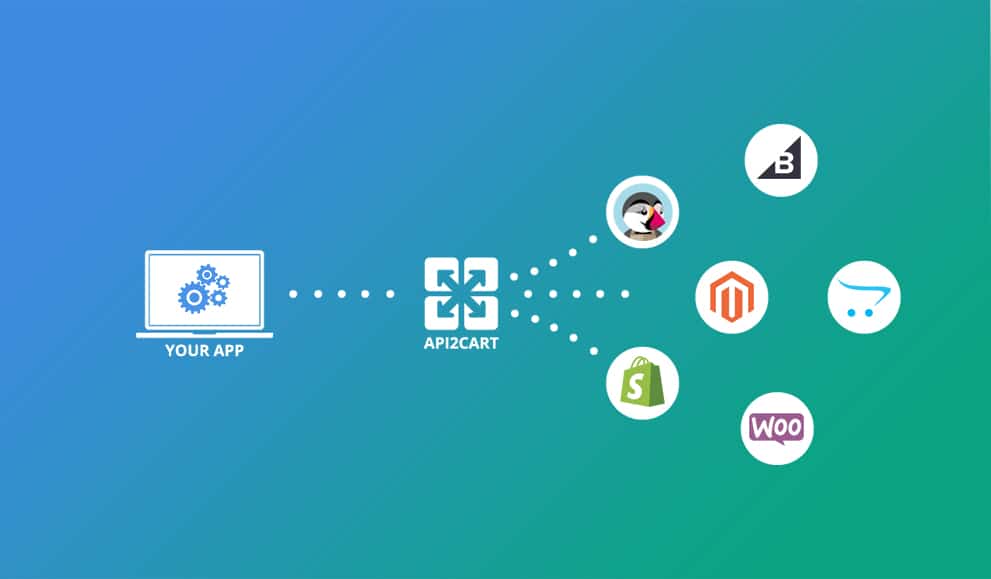
How does API2Cart Simplify eCommerce API Integration Into iPaaS Solutions?
- Getting a list of orders, order.list - This method allows you to get a list of orders from any connected eCommerce platform. iPaaS open source platforms, such as Apache Camel or n8n can use API2Cart to automatically receive orders from different platforms.
- Product synchronization, product.list - Allows you to get a list of products, update their prices and inventory via API. iPaaS open source solutions that process product data (e.g. Apache NiFi) can integrate API2Cart to automate catalog updates.
- Webhooks for iPaaS Process Automation - Instead of constantly polling the API, API2Cart allows you to receive instant updates on orders, products, and delivery statuses via webhooks. Connecting webhooks to iPaaS platforms allows you to automate data flow without the need to constantly poll the API.
For software developers working on eCommerce integrations, managing multiple platform APIs can be a time-consuming and complex process. Traditional open-source iPaaS solutions require manual API development, version maintenance, security management, and infrastructure scaling. API2Cart eliminates these challenges by providing a unified API that seamlessly connects with 60+ eCommerce platforms and marketplaces, significantly reducing development time and effort.
Get started with a free trial today and see how it can transform your integration process. All you need to do is to book a FREE demo and contact our managers.
Conclusion
iPaaS open-source solutions offer flexibility, scalability, and cost-efficiency, making them an attractive choice for software developers looking to streamline integrations between applications, cloud services, and data sources. By leveraging workflow automation, API orchestration, and real-time event processing, these solutions enable developers to build custom, scalable integration solutions without the limitations of proprietary platforms.
While open-source iPaaS offers great potential, managing API integrations across multiple platforms can still be complex and resource-intensive. This is where API2Cart can enhance open-source iPaaS by providing a unified API to connect with multiple eCommerce platforms, eliminating the need for manual API connector development and ongoing maintenance.
